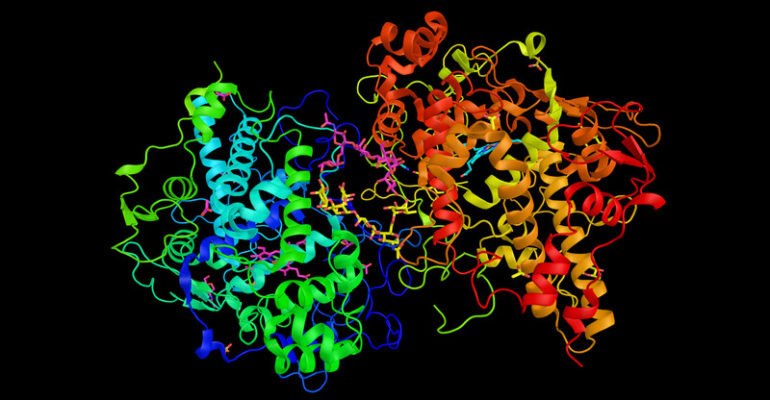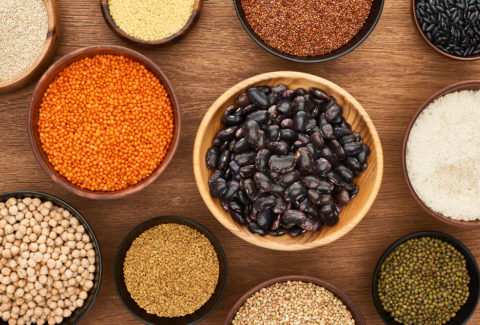Oxidative Stress and Inflammation
In the intricate dance of maintaining well-being, reducing oxidative stress and inflammation emerge as essential partners. These two interrelated processes play a pivotal role in the body’s equilibrium, impacting everything from cellular health to chronic disease prevention. This article delves into the profound connection between oxidative stress and inflammation, shedding light on strategies to harmonize health by reducing their impact.
Oxidative Stress: The Unseen Culprit
Oxidative stress occurs when there’s an imbalance between the production of Reactive Oxygen Species (ROS) and the body’s ability to neutralize them with antioxidants.[1] These ROS, also known as free radicals, can damage cells, DNA, and proteins, contributing to various health issues. Factors such as pollution, unhealthy diets, smoking, and even intense exercise can elevate oxidative stress levels.
The Inflammatory Response
Inflammation is the body’s natural defense mechanism against harm. When triggered by injury, infection, or stress, inflammation sends immune cells to the affected area to heal and protect. However, chronic inflammation can become a double-edged sword, damaging healthy tissues and exacerbating conditions like cardiovascular disease[2], diabetes[3], and autoimmune disorders[4].
A Vicious Cycle: Oxidative Stress and Inflammation
Oxidative stress and inflammation often fuel each other in a vicious cycle.[5] Oxidative stress can trigger inflammation, and ongoing inflammation can generate more oxidative stress. Breaking this cycle becomes pivotal in maintaining health and preventing chronic diseases.
The Role of Antioxidants
Antioxidants[6] act as a shield against oxidative stress, neutralizing free radicals and preventing cell damage. Incorporating a diet rich in fruits, vegetables, whole grains, nuts, and seeds can provide a steady supply of antioxidants. Additionally, certain vitamins (like vitamins C and E[7]) and minerals (like selenium) bolster the body’s defense against oxidative stress.
Anti-Inflammatory Lifestyle Choices
Several lifestyle choices can help dampen chronic inflammation. Regular physical activity, stress management techniques (such as meditation and deep breathing), and maintaining a healthy weight are known to reduce inflammation. Adequate sleep is also crucial, as sleep deprivation can lead to increased inflammation markers.
Nutrition as Medicine
Certain foods possess potent anti-inflammatory properties. Fatty fish, like salmon and mackerel, are rich in omega-3 fatty acids that can quell inflammation. Spices like turmeric, ginger, and garlic contain compounds that have anti-inflammatory effects. Choosing whole foods over processed ones can also help reduce inflammation.[8]
Balancing Omega-6 and Omega-3 Fatty Acids
While omega-6 fatty acids are essential, an imbalance between omega-6 and omega-3 fatty acids can contribute to inflammation. Reducing the consumption of processed oils rich in omega-6, such as vegetable, corn, and soybean oil, and increasing the intake of omega-3-rich foods can help maintain the balance.[9]
Stress Reduction and Mindfulness[10]
Chronic stress contributes to inflammation by elevating cortisol levels. Engaging in relaxation techniques, mindfulness, and activities that promote emotional well-being can mitigate stress’s impact on inflammation.
Holistic Approach to Health
Reducing oxidative stress and inflammation requires a holistic approach that addresses various aspects of well-being. By nurturing the body with a balanced diet, promoting physical activity, managing stress, and adopting mindful lifestyle choices, we can create an environment where oxidative stress and inflammation are kept in check. This harmony paves the way for optimal health, vitality, and a lowered risk of chronic diseases—enabling us to embrace life with vigor and resilience.
What’s Next:
- Explore Our Ongoing Physical Wellness Certificate Course
- Review Past Articles: Delve deeper into nutrition and well-being by revisiting previous articles in this series.
- Stay Informed: Keep up with the latest research and recommendations on nutrition for optimal health.
- Client Conversations: Engage in regular conversations with your clients about nutrition, helping them overcome obstacles to healthier eating habits.
Remember, as clinicians, your awareness and understanding of nutrition are essential for inspiring positive transformations in both you and your patients. This series equips you with the tools needed to empower change and optimal well-being.
Until the next article, let’s continue our quest for discovery and healing through the power of nutrition.
[1] Liguori, Ilaria, et al. “Oxidative stress, aging, and diseases.” Clinical interventions in aging (2018): 757-772.
[2] Vaziri, Nosratola D., and Bernardo Rodríguez-Iturbe. “Mechanisms of disease: oxidative stress and inflammation in the pathogenesis of hypertension.” Nature clinical practice Nephrology 2.10 (2006): 582-593.
[3] Burgos-Morón, Estefania, et al. “Relationship between oxidative stress, ER stress, and inflammation in type 2 diabetes: the battle continues.” Journal of clinical medicine 8.9 (2019): 1385.
[4] Smallwood, Miranda J., et al. “Oxidative stress in autoimmune rheumatic diseases.” Free Radical Biology and Medicine 125 (2018): 3-14.
[5] Gill, Roop, Allan Tsung, and Timothy Billiar. “Linking oxidative stress to inflammation: Toll-like receptors.” Free Radical Biology and Medicine 48.9 (2010): 1121-1132.
[6] Adwas, Almohktar A., et al. “Oxidative stress and antioxidant mechanisms in human body.” J. Appl. Biotechnol. Bioeng 6.1 (2019): 43-47.
[7] Singh, U., S. Devaraj, and I. Jialal. “Vitamin E, oxidative stress, and inflammation.” Annu. Rev. Nutr. 25 (2005): 151-174.
[8] Egbuna, C., and J. C. Ifemeje. “Oxidative stress and nutrition.” Tropical Journal of Applied Natural Sciences 2.1 (2017): 110-116.
[9] Sepidarkish, Mahdi, et al. “Effect of omega-3 fatty acid plus vitamin E Co-Supplementation on oxidative stress parameters: A systematic review and meta-analysis.” Clinical Nutrition 39.4 (2020): 1019-1025.
[10] Birashk, B. E. H. R. O. O. Z., et al. “Comparison effectiveness of MBSR and CBT on interleukin 6 and oxidative stress in hypertensive patients.” Int. J. Life Sci. Pharma Res 8.3 (2018): L39-L45.







